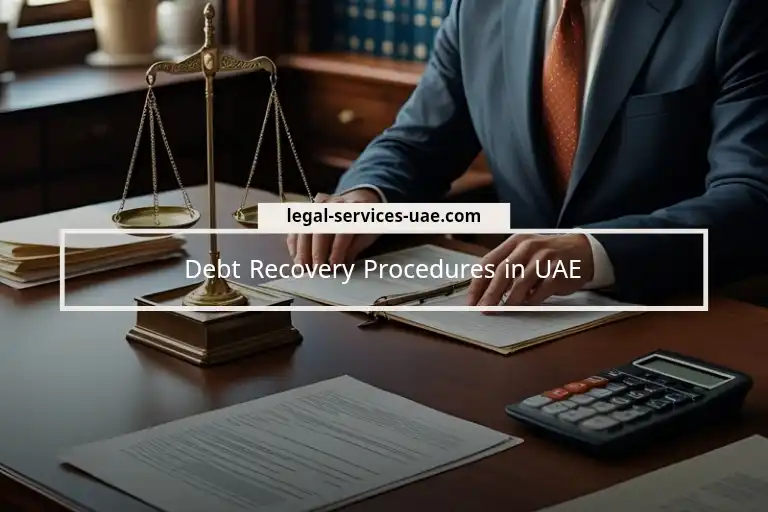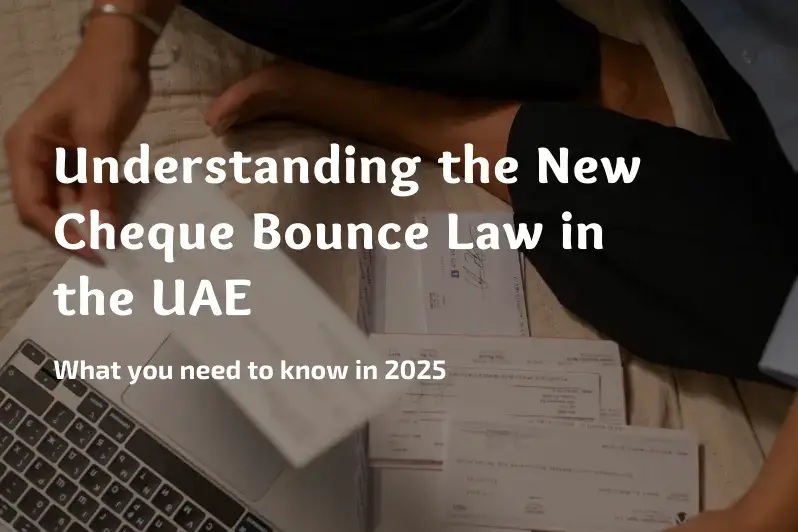Mastering Debt Recovery Procedures in UAE is essential for any business or creditor facing unpaid debts. With a robust legal architecture and clear statutory frameworks, UAE laws support efficient recovery actions. In this article, we’ll explore key regulations, judicial considerations, and practical guidance designed to streamline the Debt Recovery Procedures UAE process and protect your financial interests.
Need expert help? Click on the WhatsApp icon below to contact our licensed UAE lawyers today.
فهرس المقال
Legal Basis for Debt Recovery Procedures in UAE
UAE debt collection is grounded in Federal Law No. 5 of 1985 (Civil Transactions) and Federal Decree-Law No. 50 of 2022 (Commercial Transactions). The newly introduced Federal Decree-Law No. 15 of 2024 governs collection by federal entities. These laws specify permissible claims, asset attachments, and dictate enforcement steps—forming the bedrock of Debt Recovery Procedures in UAE.
Federal Decree-Law No. 15 of 2024: Special Rules
For debts owed to UAE federal entities, Decree-Law No. 15/2024 mandates that:
- A notice must be issued within 10 business days of default, allowing a 20-day cure period .
- Unpaid obligations automatically convert into executable writs.
- The law allows outsourcing enforcement to licensed lawyers under strict controls—modernizing Debt Recovery Procedures in UAE.
Step-by-Step Debt Recovery Procedures in The UAE
Here’s a concise yet comprehensive sequence of how debt recovery unfolds in practical terms:
- Pre-action Notice
Issue a statutory or informal demand notifying debtor of the outstanding debt. - Claim Filing
Submit a Statement of Claim with supporting documents to the appropriate court. - Judgment Phase
Attend hearings; the court reviews evidence before issuing judgment. - Enforcement Actions
Upon judgment, apply for enforcement measures: asset garnishment, account freezing, or travel restrictions. - Bankruptcy or Preventive Settlement
If the debtor remains non-compliant, initiate restructuring or bankruptcy under Decree-Law 51/2023 after issuing a 30-day formal notice. - Asset Liquidation & Distribution
In bankruptcy proceedings, a court-appointed trustee manages asset sales and distributes proceeds.
Statute of Limitations: Crucial Time Windows
Time is of the essence in Debt Recovery Procedures UAE:
Legal claims for commercial debts expire after five years from the due date, while personal/civil debts lapse after fifteen years, unless extended by a formal demand. Creditors must monitor these timelines closely; failure to act punctually may result in claims being dismissed. Prompt assessment by legal counsel ensures rights are preserved.
Evidentiary Expectations: What Courts Require
UAE courts demand clear documentary evidence in any UAE Debt Recovery Procedures case, including:
- Contractual agreements with detailed terms.
- Invoices and delivery acknowledgments.
- Promissory notes or cheques.
- Bank transfer records.
- Formal correspondence and legal notices.
For international debts, additional proof of transactions and Dubai’s jurisdiction is often needed. Inadequate evidence may cause litigation delays or dismissal.
Enforcement and Bankruptcy Options
Once judgment is granted, a creditor may enforce recovery through:
- Freezing debtor’s bank accounts,
- Seizing assets,
- Obtaining travel bans,
- Garnishing salaries, under Civil Procedure Law No. 42/2022.
Under Federal Decree-Law No. 51/2023, creditors can also initiate bankruptcy or preventive settlement processes—where debtors may restructure or liquidate under court supervision. This introduces powerful tools within UAE Debt Recovery Procedures.
Frequently Asked Questions (FAQ)
In conclusion, Debt Recovery Procedures in UAE are constructed on a solid legal foundation encompassing detailed statutes, strict timelines, documentary evidence, and robust enforcement options. From federal decrees to mediation and comprehensive bankruptcy laws, each stage offers a clear avenue to reclaim debts. With strategic legal planning, creditors can navigate these steps with confidence.
Ready to recover your dues? Contact our UAE-licensed lawyers in Dubai via WhatsApp now to start effective UAE Debt Recovery Procedures UAE.
Was this helpful?
Specialized Legal Content Writer, possessing deep legal knowledge and exceptional ability to demystify legislation and analyze judicial developments. He delivers clear, precise content that helps you understand your legal rights and obligations while empowering you to make informed decisions across diverse legal domains. Working within our expert legal team, he ensures credibility and trustworthiness in every piece of content.



